Summer 2023 newsletter
Mike Lattanzi and Susan Silveus, Haiti
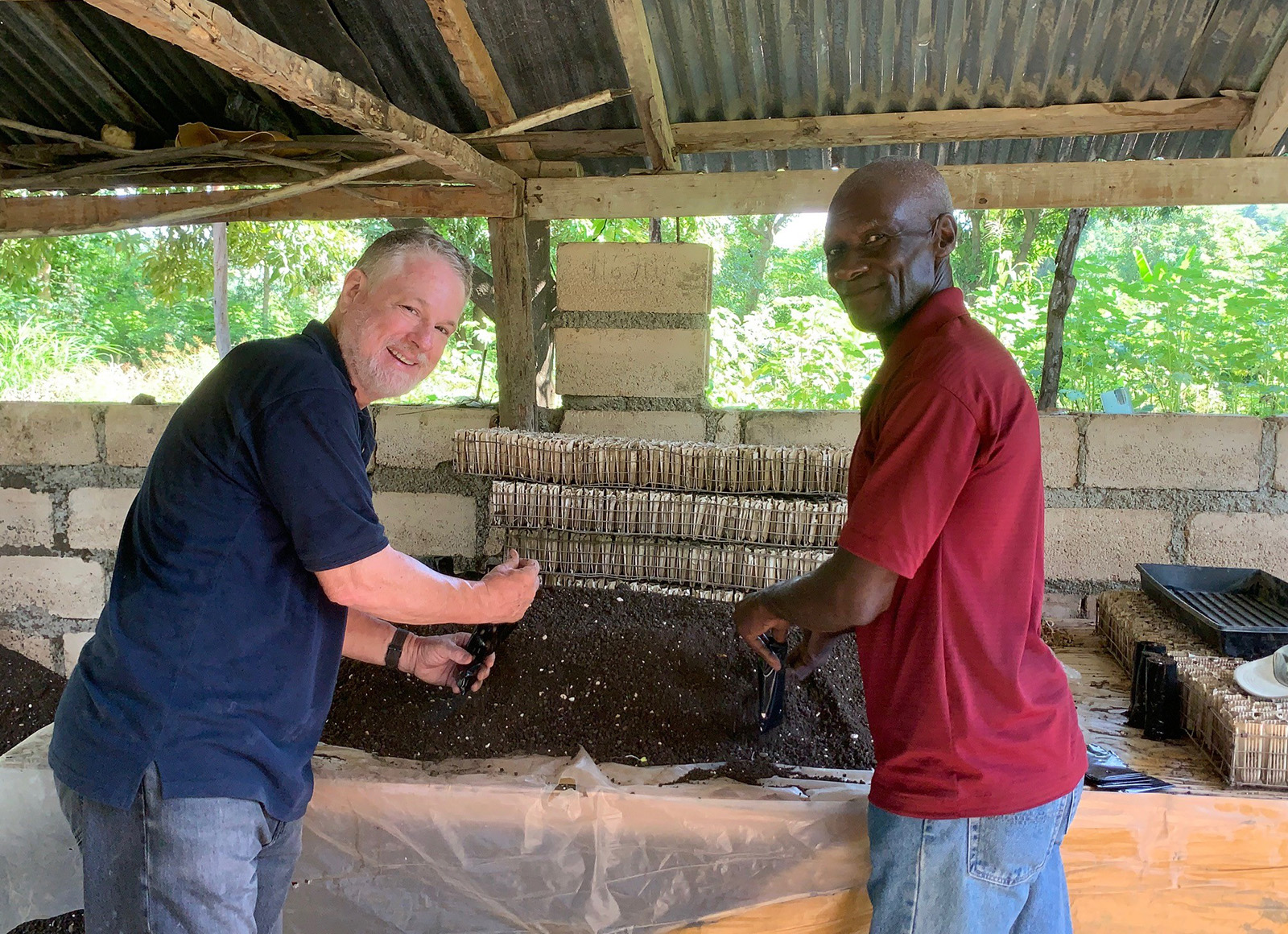
Mike and Jacques filling bags with dirt in preparation for planting seedlings
Mike and I have been in Haiti for four months now, and it’s time to write a newsletter. That task seems a bit daunting to me. There’s both way too much to tell and also not yet enough to say about what we’ve actually been doing, which is mostly trying to learn the language and figure out how to do all the daily tasks. Mike has written a few snippets below that give a sense of our life here.
—Susan Silveus
So I have been spending several mornings a week at a tree nursery as a way of getting in some language practice in a practical setting. The tree nursery is an effort to address deforestation, a longstanding problem in Haiti.
I work with Jacques, who has been at the tree nursery for more than 20 years, and we spend much of our time filling bags with dirt into which trees can be planted. Jacques is a kind and gentle man, very generous with a “bon travay” (good work).
So you can imagine that after hundreds of bags filled and numerous bon travays, I am feeling pretty good about myself. I feel like an expert in filling bags with dirt in such a short time — that is, until I catch a glimpse of Jacques skimming dirt off the top of my bags. Apparently, I have been filling them too full.
The next morning I get in before Jacques, eager to use my newfound knowledge. When Jacques arrives, he looks over at my bags and then reaches out to check them for the requisite hardness. Then a big smile; “tre bon travay” (very good work), accompanied with handshakes and fist bumps. But I am perhaps not yet an expert.
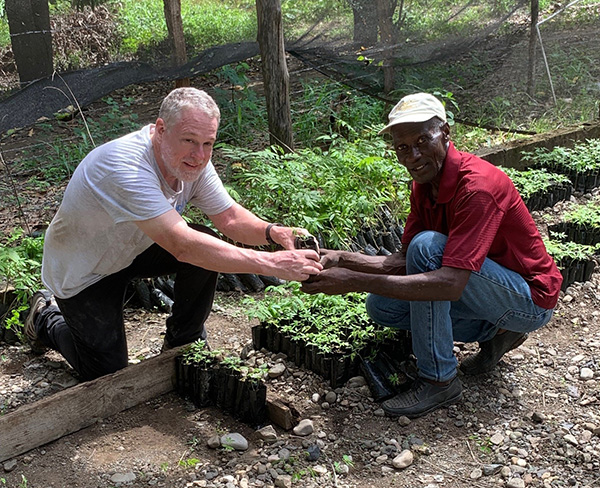
Mike and Jacques working in the tree nursery in Grepin, Haiti.
Jacques and I are filling bags with dirt when we are joined by Marcel. I am happy about this because Jacques and Marcel are two of the people whose Creole I have the least difficulty understanding — so I am looking forward to following their conversation. Unfortunately, they pick this moment to begin to speak in an entirely different language. While this language resembles Creole in that every 10th word is recognizably Creole, it is spoken much more quickly and in a softer voice.
It seems that, in addition to learning Creole from our video language course — from which you can tell that Creole is a slowly spoken and clearly enunciated language — I am also going to have to learn this other language in which Jacques and Marcel are so fluent.
This morning, I am the first person into the tree nursery, and there is a customer waiting. He wants to buy mango trees. This should not be a problem. I have a list of the prices. But now he wants to know which types of mango trees we have. I cannot distinguish a mango tree from an avocado or grapefruit tree — let alone distinguish different types of mango tree.
Luckily, Aneus from the plantain nursery next door arrives to point out what even the dimmest worker in a tree nursery should know: that this is a mango fransik and this is a mango tifi kominye. I have now taken note of where the different mango trees are in the yard – but I live in fear that someone will come in overnight and switch them around.
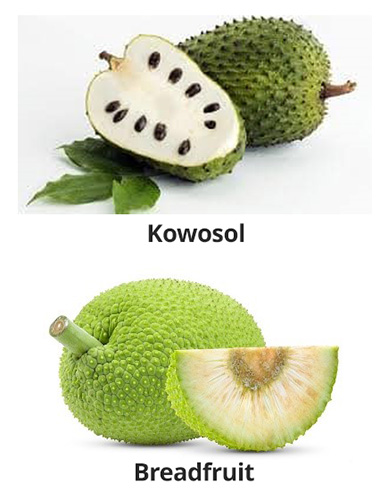 My ignorance of tree types extends also to the fruits they produce. One morning, I am coming back from the market, proud of myself for having successfully purchased a breadfruit. I leave it out on the kitchen counter downstairs so that everyone can see what I have accomplished.
My ignorance of tree types extends also to the fruits they produce. One morning, I am coming back from the market, proud of myself for having successfully purchased a breadfruit. I leave it out on the kitchen counter downstairs so that everyone can see what I have accomplished.
Later in the day, I can see that Jill has a puzzled look on her face. Who bought the kowosol (soursop)?
I have to remind myself that I do have skills. I imagine the day when the people of our town wake up to realize that the thing they most need in life is someone to teach them the epistemology of Immanuel Kant … in English. When that day comes, I will be more than ready to jump into the breach. But until then, I had better learn to distinguish mango fransik from mango tifi kominye.
Please consider joining our circle of COMPANIONS IN MISSION. Companions in Mission are generous donors, like you, who give financial gifts on a regular (usually monthly) basis. For more information visit Become a Companion in Mission. Thank you so much for your generosity!

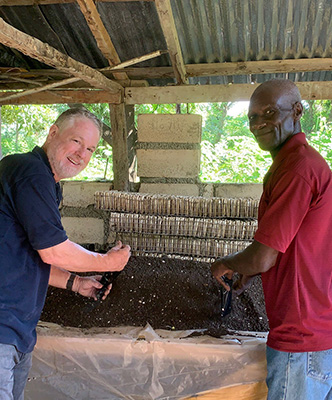

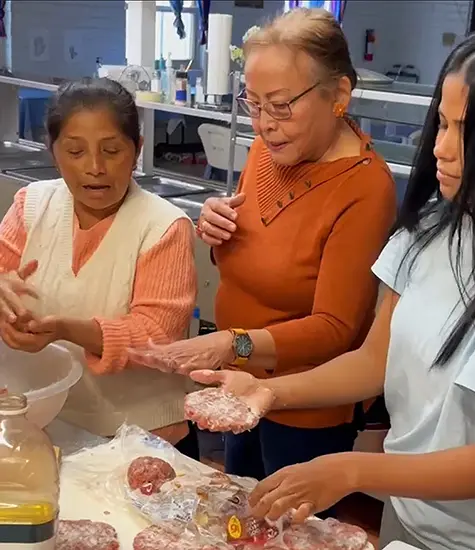
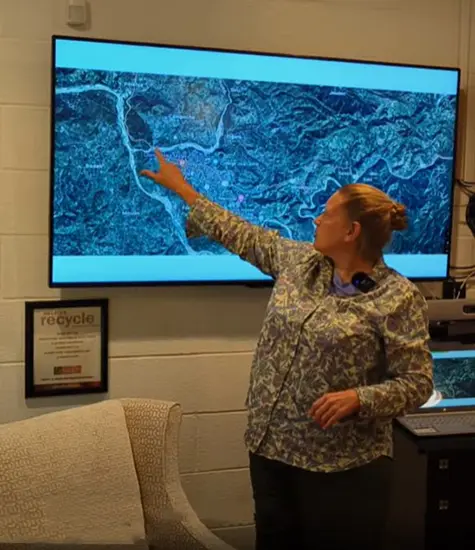
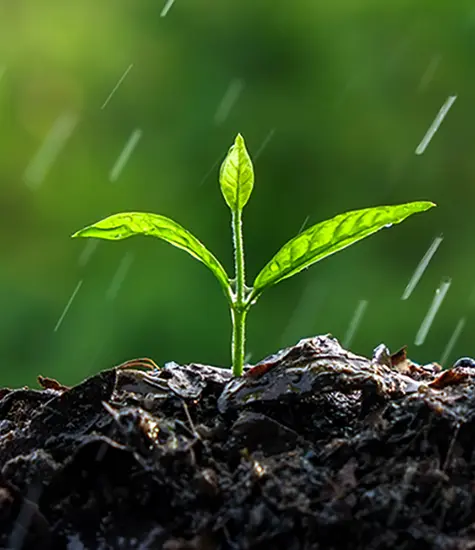




I loved this story! Mission is the ultimate humbling experience. All of our “impressive Western skills” seem useless if we don’t have basic life skills like distinguishing different types of mangos. Your day will come Mike, but most likely not in anyway that you could predict. Stay open and keep that sense of humor. And besides, stuffing bags with dirt can be very meditative ; )
All the best.
This is great Mike! Exactly how I feel every day … 6 months in! Made me smile and laugh!
I really enjoyed reading your stories Mike! Even just a little taste of what your life is like there helps us to ‘join you on your journey’. Thanks for sharing!
I would trust you to lecture them on the Gadamer-Habermas debates but leave Kant to the experts.